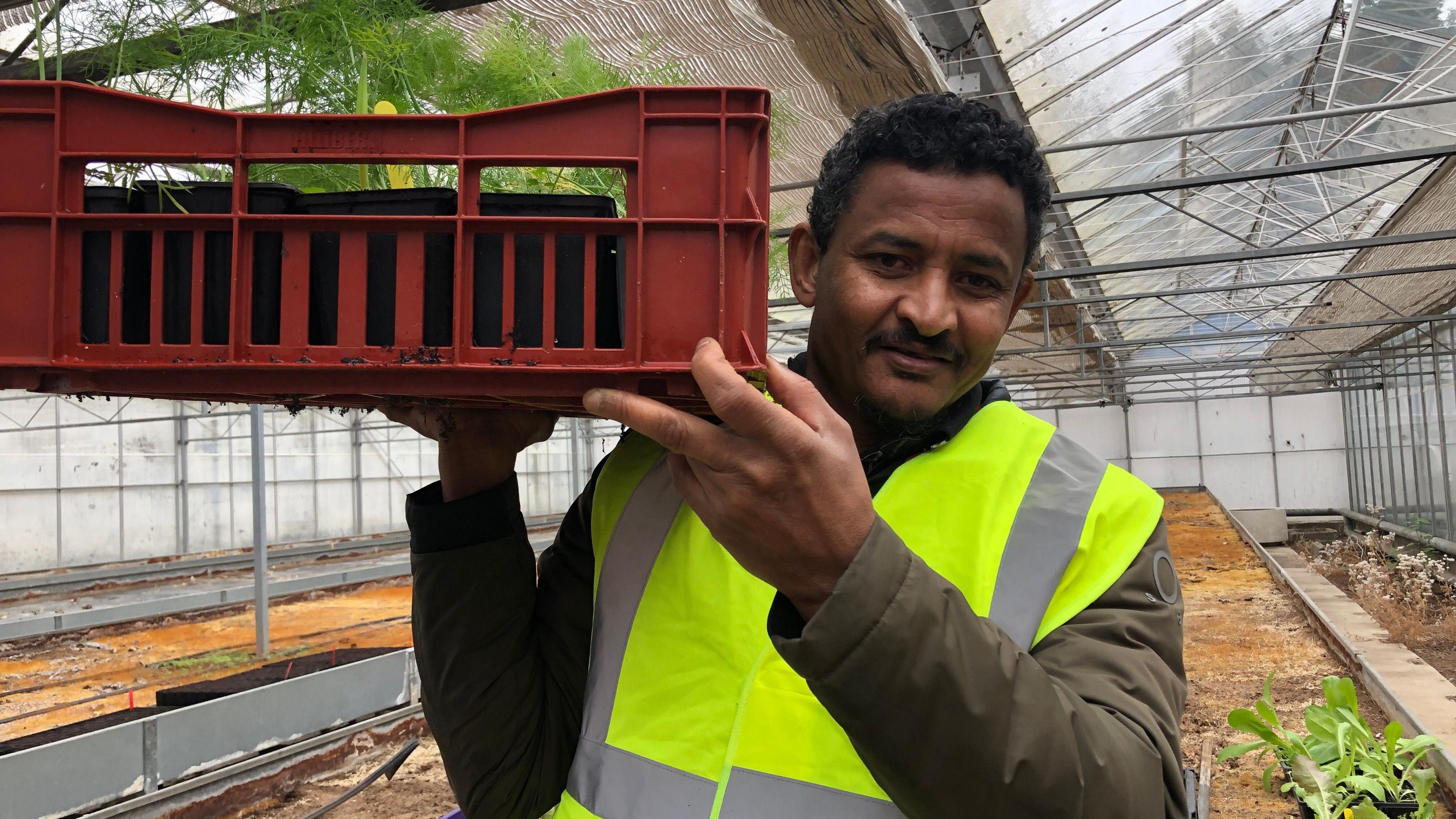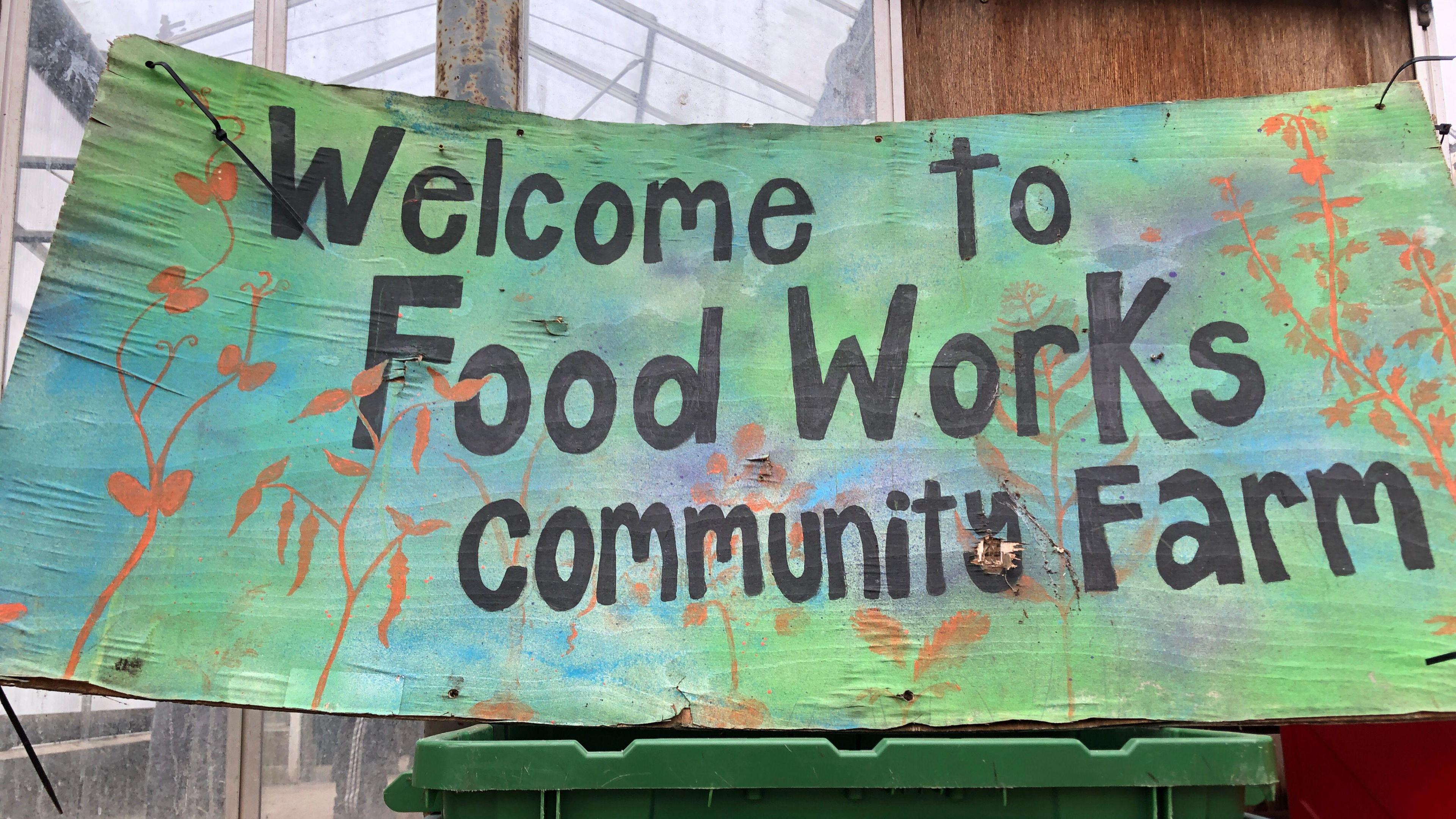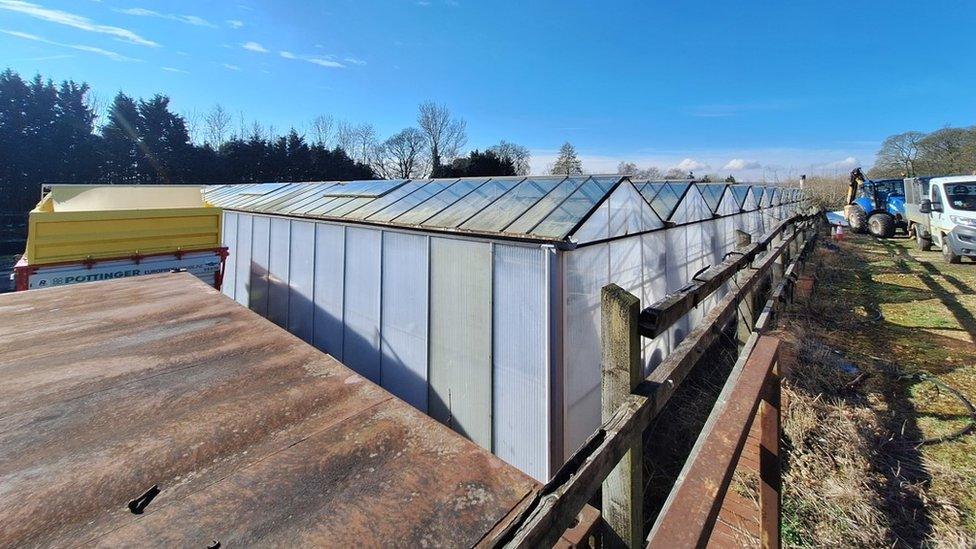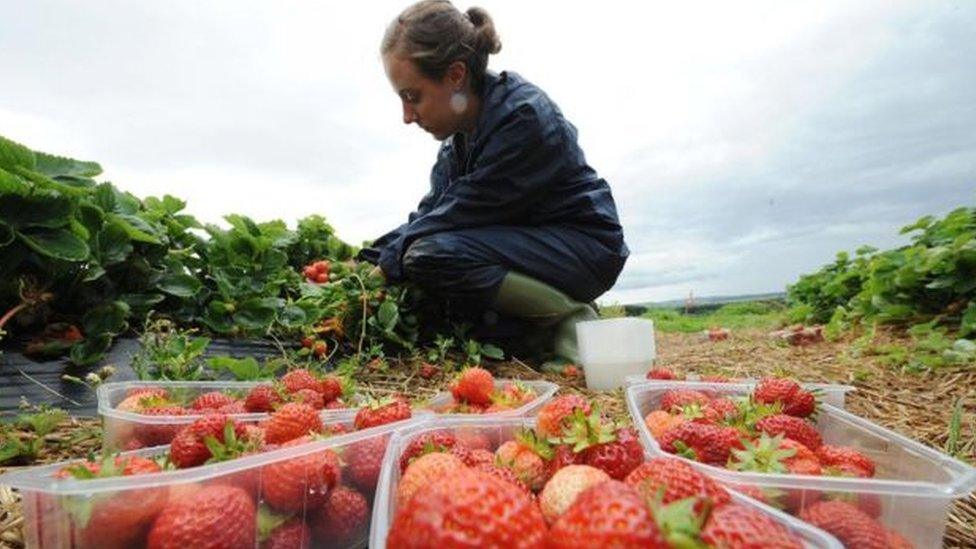Derelict greenhouses used to grow fresh produce

Volunteers have been helping prepare the soil at Norton Nurseries for planting
- Published
A vast complex of derelict greenhouses have been brought back into use by a social food enterprise.
Food Works, in Sheffield, has been given permission to use the former Norton Nurseries site in Graves Park.
With almost half of UK vegetables and more than 80% of fruit is currently imported, Food Works hope to provide more homegrown produce for the city.
Crops grown at the site will be used at its cafes and kitchens, while plants from the nursery will be given to schools and other groups to grow their own.
The glasshouses, which were opened in 1983, were originally used to grow and supply bedding plants for Sheffield parks.
This stopped in the mid-1990s amid high running costs and dwindling demand for bedding plants.
After being granted permission to use the site, Food Works began preparing the soil in October and have already started filling the space with greenery.

Food Works also runs cafes intercepting waste food and turning it into cheap meals
"It's amazing. We've just done an hour and now there's 18 metres of beautiful wa wa ga choi ready to grow and feed people," said volunteer Beth Cooper.
Another volunteer Jane Tadman said: "I can really see the immense potential this place has got.
"The other sites were so much smaller. This is a massive step up, and Food Works will be able to produce so much more food and do so much more for the community."
Maddy Starzak, Food Works' lead growing coordinator, said she hoped the site could be used to help others grow their own.
"A big barrier for people growing more in the city is having access to indoor growing space where you can lay out trays like this," she said.
"It also means that people can be growing more exciting things like tomatoes and cucumbers, and not having to use all that space as a propagation space."
Former Norton Nurseries site is being used for a social food enterprise
Earlier this year groups including the NFU and Soil Association warned the government that the UK was becoming overly reliant on foreign imports.
A new national food security index, external, external found that just 17% of fruit and 55% of vegetables consumed in the UK are grown here.
Food Works CEO René Meijer said, as a result, global shocks could affect shopping baskets back at home.
"A lot of the area where these foods have previously been grown at industrial scales are now very vulnerable to climate change, and so crops are now failing across the planet and that has an impact," he said.
"The imports introduce a lot of vulnerability, and we've seen this over the last couple of years when we've regularly had empty supermarket shelves."
Listen to highlights from South Yorkshire on BBC Sounds, catch up with the latest episode of Look North or tell us a story you think we should be covering here, external.
Related topics
- Published10 March 2024

- Published14 May 2024
